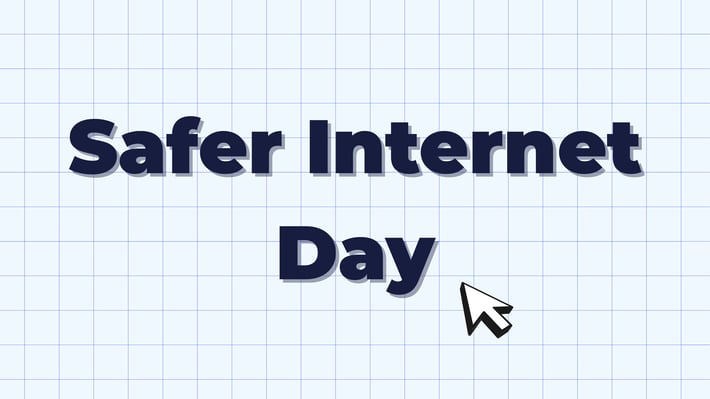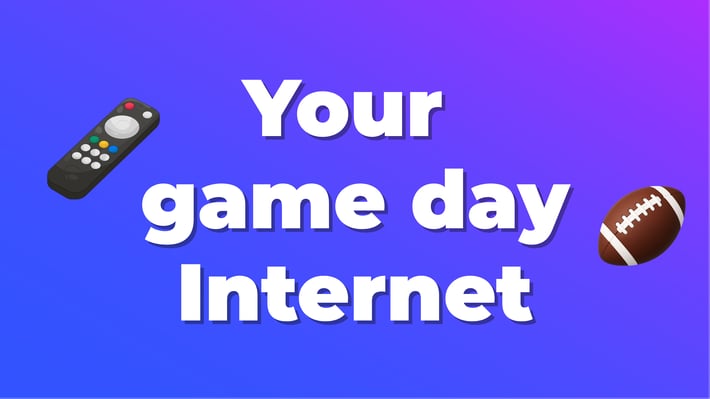
Bandwidth vs. speed: What do I need from each, day-to-day?
To understand internet bandwidth vs. speed, think of the internet as a highway. Bandwidth is its capacity, and speed is how fast cars are actually going.
Whether you're streaming the World Series or on a vital all-hands Zoom video conference, you just want your internet to work. In order to keep your household streaming, Zooming, gaming and listening, you need both bandwidth and speed. As you consider bandwidth vs. speed, understanding the difference can help you decide what kind of connection would be best for your home.
Bandwidth is how much data can travel through your internet provider's pipes within a certain amount of time. This is usually measured in megabits per second (Mbps), and it's what people are typically thinking about when the topic of internet speed comes up.
Speed is how fast data is actually coming into and leaving your device. So while you may have 400 Mbps' worth of bandwidth from your internet provider, your actual speed on a single device may very well be something like 50 Mbps, or even less for uploading purposes.
If you think of the internet as an information superhighway, bandwidth is the highway's capacity, and speed is how fast your car is actually going, which often depends on how much traffic there is around you.
How much bandwidth am I using?
Now that we're clear on internet speed vs. bandwidth, we can take a look at how they actually affect your day-to-day and what you should look for in an internet provider.
Streaming
Let's say you're a family of four. Odds are good that you're not all going to watch the same thing at the same time on the same streaming service. Streaming video, especially the 4K video that streaming services like Netflix and HBO Max offer, takes up quite a bit of bandwidth. Netflix recommends at least 25 Mbps of bandwidth for each 4K stream.
Streaming video will likely be the biggest bandwidth-hogging activity in your household by far, especially if you have multiple people attempting to watch 4K content on different devices. Audio streaming, including all of your favorite podcasts, only requires around 3 Mbps per device streaming.
Video calls
With video calls, you are uploading your own audio and video while simultaneously downloading the video from the person you're talking to. This doesn't require quite as much bandwidth as you might think and usually takes around 1.5 to 3 Mbps.
Online gaming
To ensure there isn't lag between you pressing a button to run away from a zombie and your in-game avatar's legs moving, you'll need about 3 Mbps in bandwidth. If you add in a video streaming component like Twitch, which allows you to stream yourself playing a game, you'll need an upload speed of at least 6 Mbps.
Other devices
Your household internet use may not be limited to smartphones, TVs and gaming consoles. You might have a home assistant, a smart thermostat or even a smart fridge. Luckily, these devices don't use too much bandwidth unless they're receiving a large update. Your speeds may be affected if an update occurs while you and your family are going about your digital day.
Fiber internet allows for more streaming
Your household may have at least one person streaming something on a TV while another is browsing social media on a tablet and someone else is playing a game online. You can easily have at least 13.75 Megabits per second of data flowing into and out of your home, even while doing seemingly minor tasks online that you may not expect to take much bandwidth.
Remember, when it comes to bandwidth vs. speed, the speed is what you're actually experiencing. That speed can depend on how much traffic there is in your home and the larger network in your area. There are many speed test sites that will tell you how quickly data is actually being sent from and received by your computer relative to the network's bandwidth. It's a good idea to compare speed tests from different internet providers before you choose one.
A regular cable internet connection is limited by the kind of wire your data travels over, and both speed and bandwidth are impacted. However, fiber internet like Ting's has unlimited bandwidth, which means no slowdowns on the highway.
.png?length=710&name=Blog%20banners%20(27).png)

